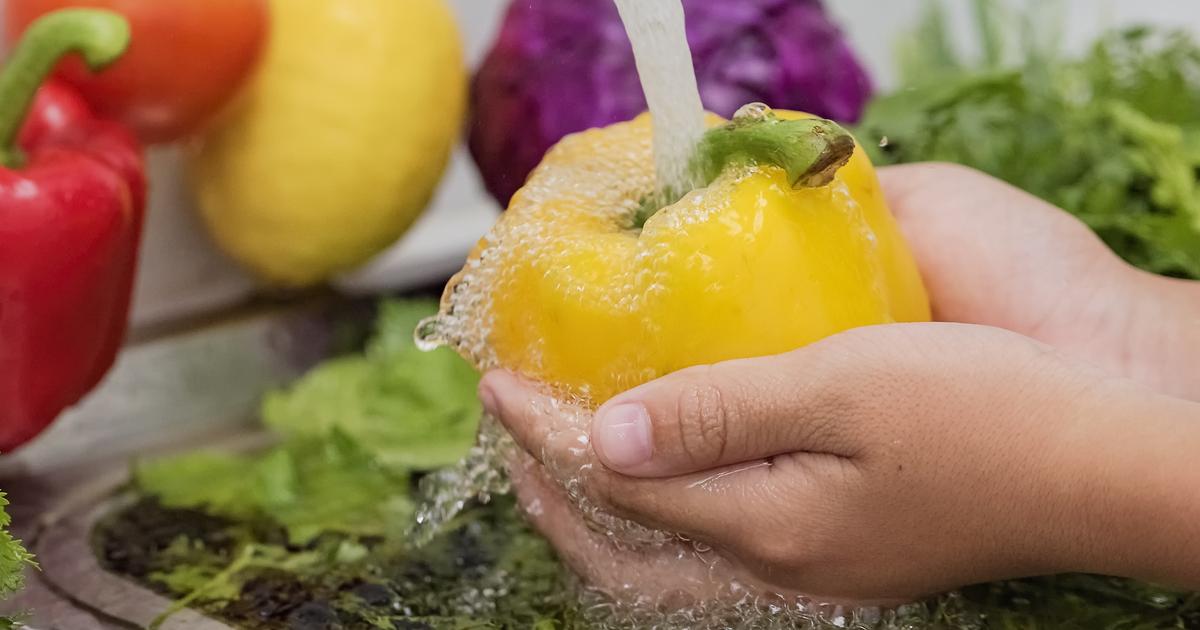Ways To Prevent Amebiasis
Amebiasis is an illness caused by an infection with a parasite known as Entamoeba histolytica, a type of amoeba. Although anyone can develop this condition, it is most often seen in tropical parts of the world and is especially common in areas with poor sanitation. Also referred to as amoebic dysentery, the condition results in symptoms such as stomach cramps and diarrhea. For most individuals, symptoms tend to be mild. However, some patients may experience more severe symptoms, including blood in the stool, fatigue, fever, unintended weight loss, and appetite loss. Liver abscesses may develop in rare instances. To treat this disease, doctors often use a combination of antibiotics and anti-parasitic medication. Patients may also need to have oral rehydration therapy to replace fluids lost due to diarrhea.
The methods outlined below are helpful in preventing amebiasis.
Wash Fruits And Vegetables Before Consumption
Fruits and vegetables may have harmful bacteria on them that can cause illnesses like amebiasis. For this reason, researchers recommend patients wash fruits and vegetables before consumption. This can be done simply by washing produce with water. Some individuals like to use soap or a specially formulated cleanser designed for produce for added protection. While choosing organic produce cuts down on pesticide exposure, it does not prevent foodborne infections from bacteria or parasites. When traveling, it is recommended that pre-cut fruits and vegetables are avoided, and patients are advised to only consume produce with a thick peel. For patients who have chronic health conditions, doctors recommend avoiding raw produce entirely while traveling to regions where amebiasis is prevalent.
Reveal more methods of preventing amebiasis now.
Avoid Unpasteurized Dairy Products

In the United States and many other countries, dairy products are pasteurized to kill parasites and other infection-causing germs such as E. coli, listeria, and salmonella. Pasteurization involves heating dairy products for a short time to kill harmful bacteria. Raw milk and other unpasteurized dairy products are often promoted as a way to boost health, but researchers and clinicians routinely advise that everyone avoid unpasteurized dairy products due to the high risk of illness. In particular, pregnant women, children, the elderly, and individuals with chronic health conditions such as cancer and diabetes face an especially high risk of complications from the consumption of unpasteurized products. Diarrhea, vomiting, and stomach cramps are all likely to occur after eating these products, and some patients have died due to infections contracted from this form of dairy. Patients who have consumed unpasteurized food or drink should monitor themselves for symptoms and visit the doctor urgently if they develop diarrhea or other side effects. While traveling in foreign countries, patients are urged to be very cautious about consuming dairy products. Out of an abundance of caution, patients with compromised immune systems may wish to avoid dairy products entirely during foreign trips. These products can be easily replaced with non-dairy alternatives such as rice milk or almond milk.
Get the details on more ways to prevent amebiasis now.
